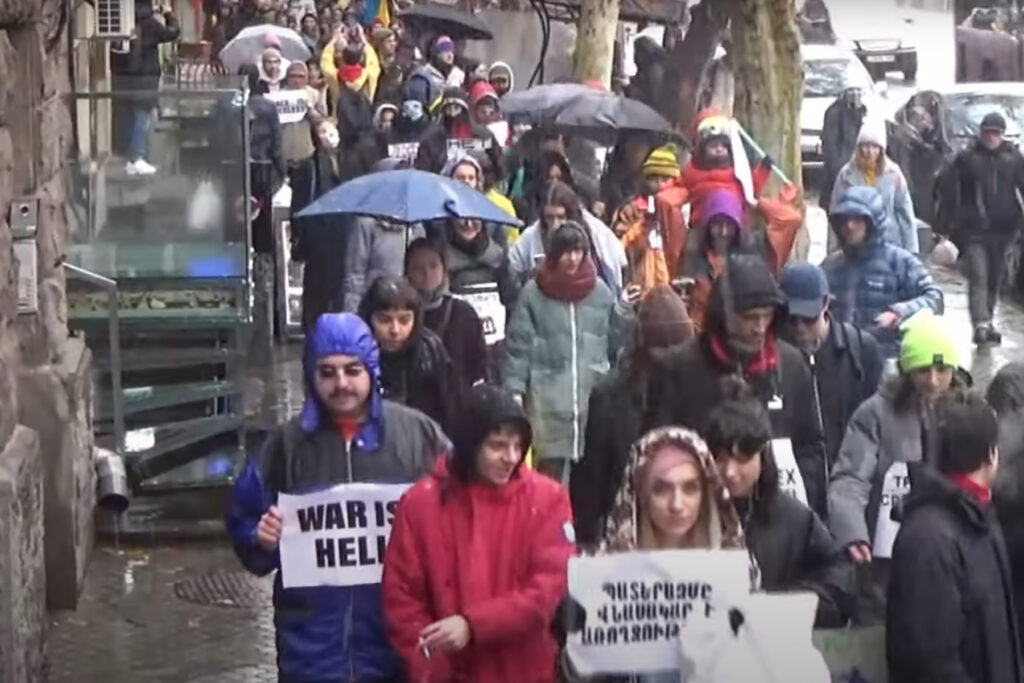Over the weekend Yerevan saw two protests concerning the Russian invasion of Ukraine. One in support of Russia and the other in solidarity with Ukraine and in opposition to the war.
Following Saturday’s pro-Russian rally, Armenian peace activists organised an anti-war protest on Sunday, the largest since the war began.
A few hundred demonstrators — Armenians, Russians, and Ukrainians, took to the streets of Yerevan to ‘resist war’, as many of the placards read. The protesters also chanted ‘No to war’ (Нет войне) in Russian throughout the march.
‘Of all countries and capitals, for Yerevan, it was the hardest to “speak out”’, Tigran Amiryan, one of the participants, wrote on Facebook. ‘But despite all the risks, today in the centre of Yerevan, “Putin to The Hague”, “ No to war!” and “Glory to Ukraine!” were heard loud in the streets of the city’.
[Read more: Silent and uneasy: Armenia’s response to the Russian invasion of Ukraine]
While the march was the largest such protest since Russia invaded Ukraine on 24 February, it has been preceded by almost a dozen small pro-Ukraine gatherings organised by Armenia’s minor pro-Western political parties and the Ukrainian embassy in Armenia. Several pro-Russian protests have also taken place in the country, since the war began, mainly organised by Armenia’s Communist Party.
In addition to the Communists, the Saturday pro-Russia protest was supported by minor parties opposed to the Nikol Pashinyan administration and known for their fervent support of Armenia joining a ‘Union State’ with the Russian Federation.
The protesters gathered near the Russian embassy of Yerevan before marching into the city centre. Many of the protesters held up cutouts of the Latin letter ‘Z’, which has in recent weeks been adopted by the Russian authorities as a symbol of support for the ‘special military operation’ in Ukraine and sang Russian patriotic songs.
In contrast to the youthful anti-war crowd, the pro-Russia rally appeared to skew older.
The protest was widely covered by Russian state-controlled media, with the apparent aim of giving the impression of mass popular support among Armenians for the invasion. A similar pro-war event was organised on 15 March at a Russian-language secondary school in Gyumri. During the demonstration, the students, most of whom are children of Russian soldiers stationed at a nearby Russian military base, lined up to form a large ‘Z’ in the schoolyard. Some of the students have since told journalists that they were forced to participate.

So far, the Armenian authorities have avoided taking a strong stance on the war, once supporting Russia in a Council of Europe vote to suspend the country, and have since abstained on other international votes concerning the conflict.
Armenia is heavily dependent on Russia, both economically and militarily, especially after the country’s defeat in the Second Nagorno-Karabakh War. Two thousand Russian peacekeepers are also stationed in the Armenian-inhabited territories of Nagorno-Karabakh.




 21 March 2022
21 March 2022



